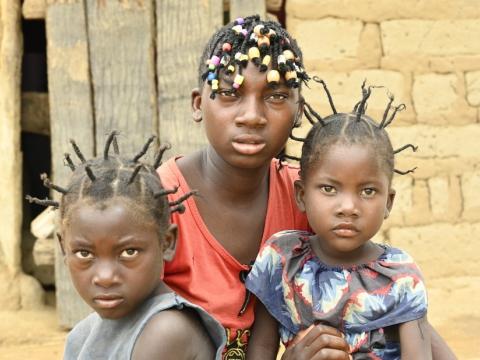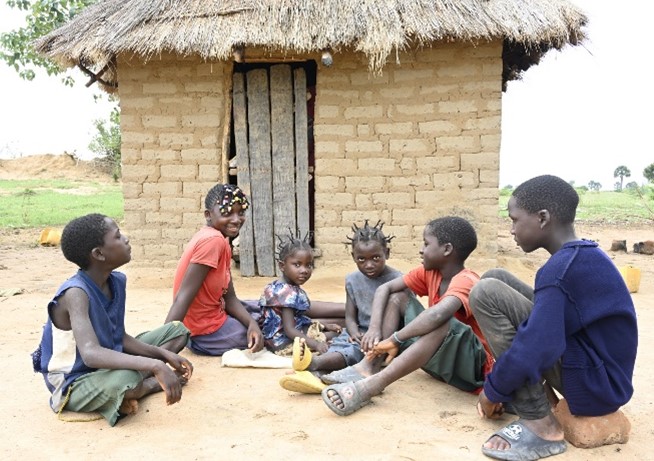El Nino’s Toll on Education: Rita’s Story of Survival, Sacrifice, and a Second Chance

By Mutinta Chiseko, Donor Liaison, Zambia
About 205 miles south of Zambia’s capital city Lusaka is a small remote village called Hanombe. The village is made up of several scattered mud brick huts with thatched roofs. It is home to over 195 people including 16-year-old Rita.
Rita is a jovial, passionate and caring person. She is the second born in a family of eight. Not too long ago, Rita and her family lived a very happy life with all the older children successfully attending school. Though she loves school so much, Rita was unable to continue learning because, sometime, last year, her parents left her in charge of their home. This was after all the crops that they had planted last farming season and normally survive on were destroyed by the El Nino drought, which has left most parts of Zambia devastated and vulnerable.

Due to the drought, Rita’s parents relocated to other villages in search of food. Occasionally, they would send her some money ($2) to buy food and basic needs for the family, but most of the time, Rita would have to go out and fend for her siblings, aged between four and 13. She barely had enough time to go to school. Her life revolved around doing chores like fetching water and firewood, cleaning the house, searching for food, cooking and caring for her siblings, especially the youngest, who is always malnourished.
After missing almost half of an entire term, Rita and her brother stopped school altogether. She was torn between her love for school and the task of caring for her siblings.
Fortunately, World Vision in partnership with the government, recently began implementing a humanitarian initiative called “Cash for Work” program aimed at cushioning families as they strive to have access to income during this drought era. Under the program, venerable communities are tasked to do community work in exchange for money, roughly about $25.
A few months ago, Rita’s father came back home upon being enlisted on the Cash for Work program relieving her from the task of fending for her family. Today, even though she still has to care for her siblings, she has time to do what she loves, attend school.